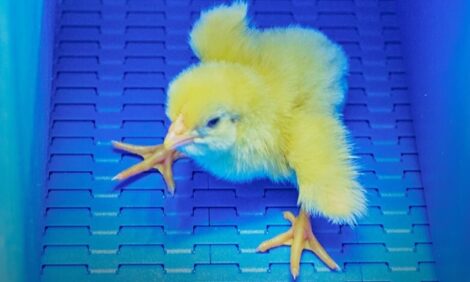



Avian Influenza: Biosecurity, Depopulation and Hygienic Procedures
In Germany laboratory testing for avian influenza is obligatory for defined, suspicious cases involving rising mortality or sudden decreases of food and / or water consumption or egg-laying.The turkey and duck industries have for many years voluntarily monitored every flock at slaughter by serology for AI-antibodies, thereby gaining a continuous picture of the AI epidemiology in the country, especially regarding upcoming LPAI situations without clinical symptoms.
Early detection, close and quick communication between the private sector and the authorities, immediate culling decisions by the authorities and quick and clean depopulation are the tools which must work simultaneously for successful limiting of AI spread, especially in poultry-dense areas.
A broadminded compensation system for flocks hit by culling decisions is absolutely essential to guarantee the cooperation of the animal owners.
Using this concept we have been able to stop a rapidly spreading H5N3 LPAI outbreak in turkeys during winter 2008/2009 and several single, non-spreading outbreaks of H5N8 HPAI since late 2016. Culling decisions, based on PCR-results, were made immediately. More than 80 % of these flocks did not develop any seroconversion until culling, meaning that we were able to detect and depopulate these flocks in less than 8 to 10 days post infection.
Based on experience gained especially during HPAI in the Netherlands (2003) and LPAI in Germany (2008/2009), staff, machinery and equipment seem to play the most important role in spreading AI, much more so than by air-borne transmission.
The AniCon-Group with about 100 staff is a company dedicated to veterinary concepts for the livestock industries and is involved in early disease detection (AniCon Labor GmbH) by developing and marketing licensed PCR-kits (Kylt® AI-PCR www.kylt.eu ) and developing and running depopulation concepts (AniCon Vorsorge GmbH).
Concepts for the immediate and quick depopulation of poultry farms need to combine the targets of
- worker safety, especially protection against zoonotic agents
- animal welfare
- minimizing the risk of disease spread
- economic aspects
Based on these targets, the most important principles for our depopulation concepts are
- minimizing the number of staff involved
- depopulation without handling live birds
- depopulation without moving live birds outside poultry barns
By minimizing the number of staff involved we are minimizing worker exposure to potentially zoonotic AI virus types and at the same time decreasing the number of people potentially supporting AI spread, even if unintended. Minimizing staff means using methods which do not need individual handling of live birds. This can be done primarily by whole house gassing with CO2 or by driving birds into transport containers which are then moved into mobile containerized gassing units.
The need to handle birds individually would lead to a severe increase of staff needed and – even worse – would require professional loading crews, because only these crews are experienced in handling the birds. Loading crews normally do not want to work in AI culling as they take the risk of losing their other customers with healthy birds. Even if crews are paid for a 3-day quarantine period after the culling, we see a tremendous risk of disease spread if such crews are involved in culling activities.
To further decrease the risk of disease spread by staff, we developed mobile showering units.
These arguments led us to a cascade of methods for culling where whole-house gassing with CO2 (in chickens and turkeys – not in waterfowl) is the preferred method, followed by the use of containerized gassing units run with either CO2 or Ar-CO2 (the method of choice for waterfowl) and then by mobile electrical waterbath systems.
The mobile locker and showering units for staff, the mobile cleaning and disinfection systems for trucks and the capacities, pros and cons of the different mobile culling systems will be demonstrated and discussed.
Dr Klaus-Peter BEHR
AniCon Labor GmbH, Hoeltinghausen, Germany
_________________________________
Information from the Avian Flu Forum hosted by Boehringer on April 2017








